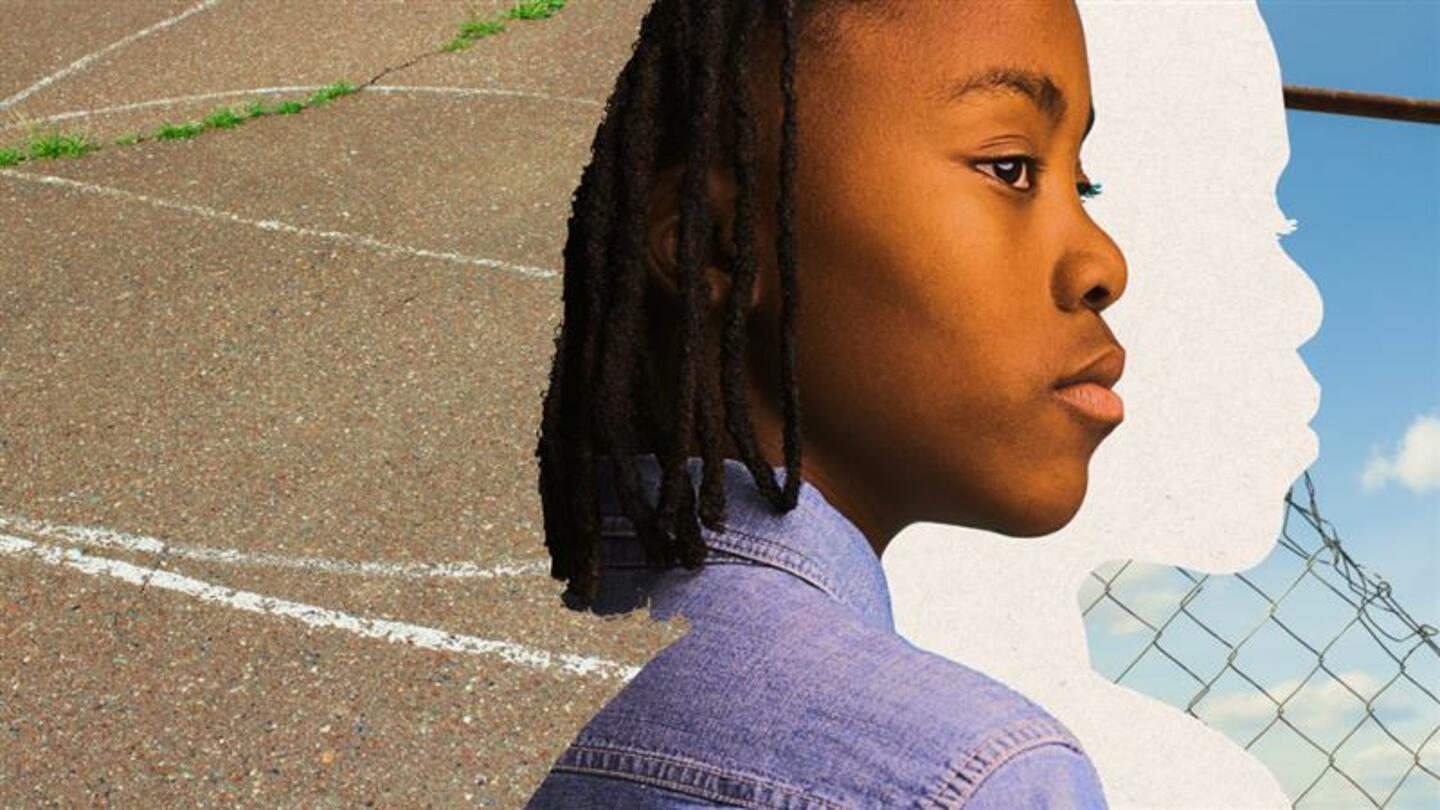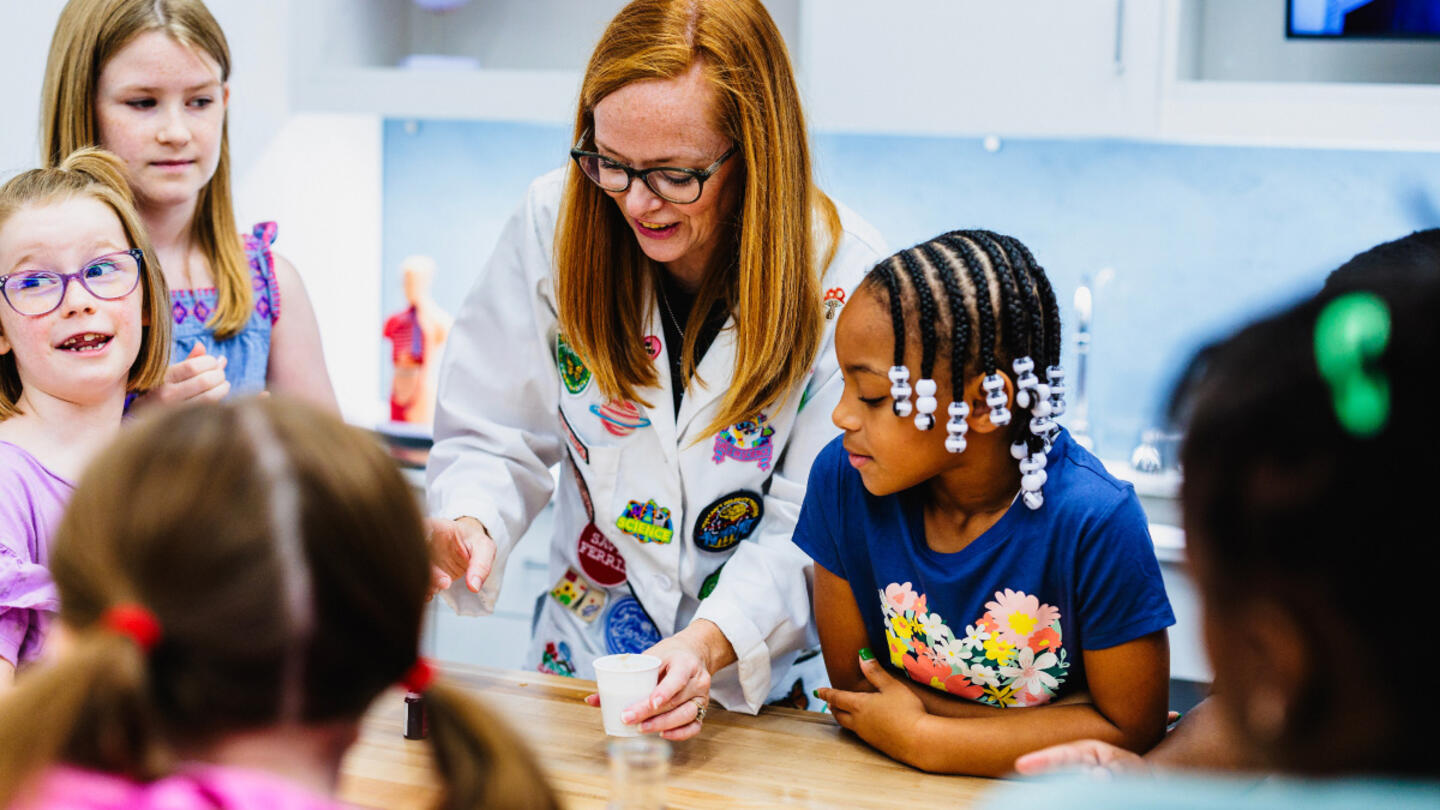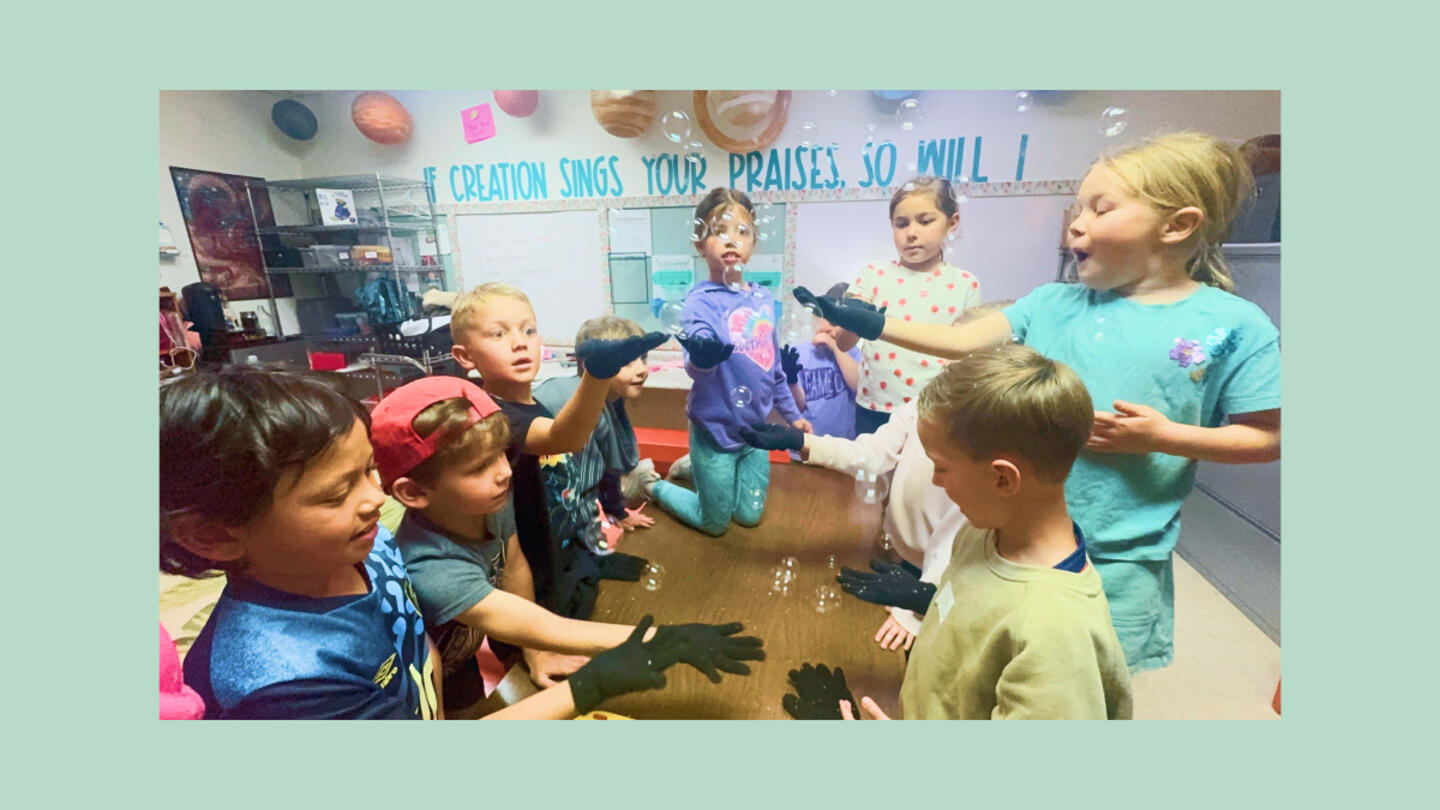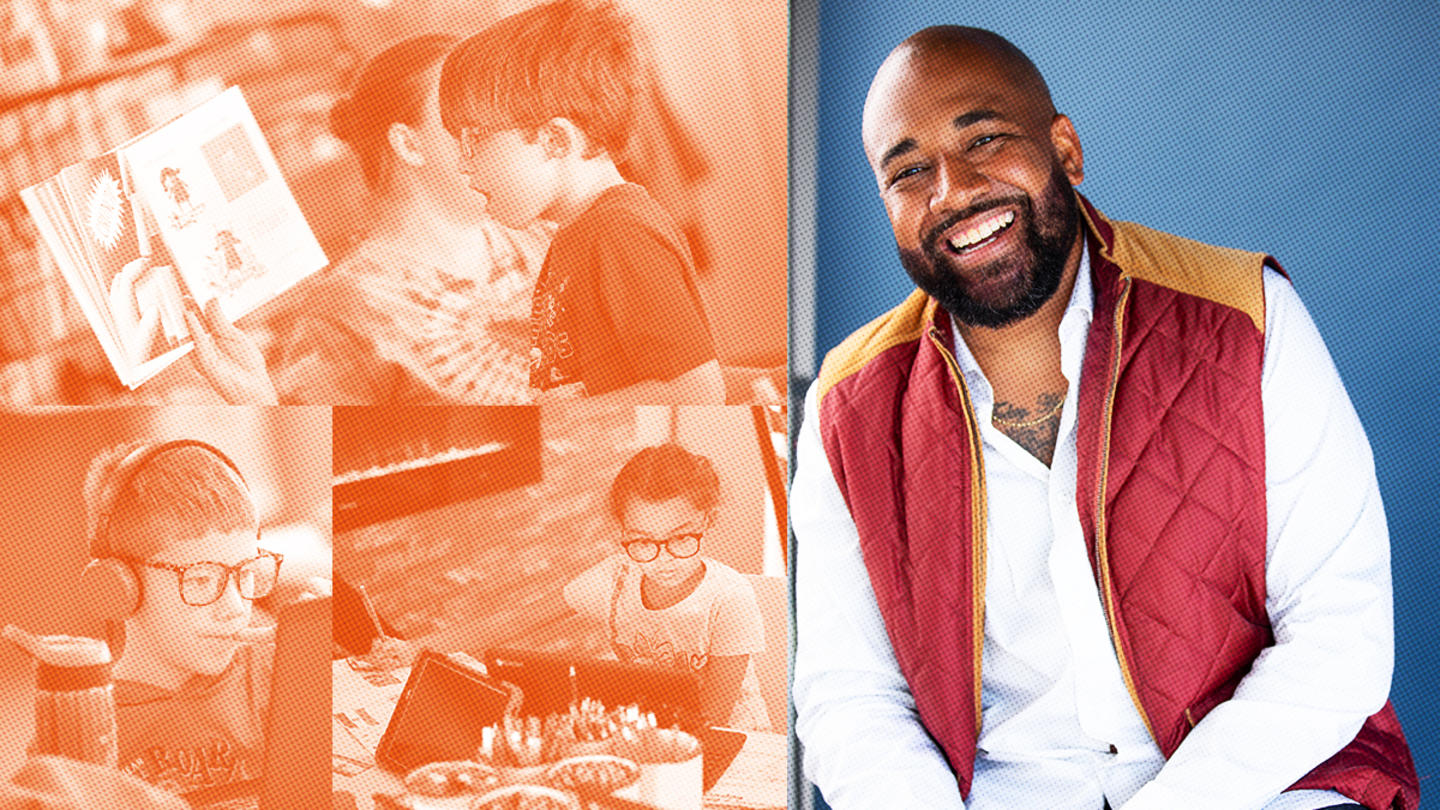Ask a highly successful person what it took to get where they are, and they’ll likely give you answers that reflect a few themes.
They learned from their failures, oftentimes more than from their successes. They weren’t afraid to step outside of boxes, to try new things, and to be different in their approach and thinking.
Now consider how these traits are perceived in education today. Failure on assignments is seen as a negative by students, educators, and parents alike. Disruption – whether in the form of talking too much in class or questioning the purpose or process of an assignment – is seen as a distraction from learning.
What difference would it make for students if these two traits — failure and disruption — were seen as essential elements of a learning environment?
It’s a question Kyle Ellison, founding executive director of the Khan Lab School in Wichita, wonders.
“I was always in trouble at school for disrupting class,” Ellison said. After nearly being expelled for his behavior, Ellison’s mom took him for psychological testing. It was discovered he was very smart for his age and his disruptive behavior was because he was bored in class.
“The behaviors that I was reprimanded for in school — like challenging the status quo — are celebrated in my career,” Ellison explained.
A self-described businessman and innovator, Ellison now leads the second-ever Khan Lab School, opening in the fall in Wichita, Kansas — where Ellison grew up. Created by Sal Khan, the founder of Khan Academy, Khan Lab School is an education model that fosters innovation in teaching and learning by focusing on scaling individualized education that meets the individual needs of students and families. The Khan model’s success demonstrates that when students like Ellison are able to tap into their unique strengths, they can contribute to society.
Ellison’s experience has informed his desire to create a learning environment where:
- Experimentation and failure are seen as essential parts of the learning process, and
- Students questioning the purpose of an assignment or suggesting a different approach to learning a concept are celebrated.
Ellison’s work developing Khan Lab School Wichita has produced insights about learning that can be valuable to educators, parents, and any other innovators interested in transforming education in traditional and non-traditional environments.
“It bothers me when people say, ‘school is meant to prepare kids for the real world,’” explained Ellison. “Kids are living in the real world right now. Wouldn’t it be better to say, ‘School is supposed to prepare kids for the world that’s waiting for them now and in the future?’”
Prepare students for the world they’re living in now
Ellison is building a learning environment where everything from how the school days are structured to who is on staff and how concepts will be mastered will empower students to see how their gifts and talents can be used in the world today, next year, in 10 years, and beyond.
Initially, school days will begin with work on traditional subjects — like math, science, English, and social studies. In the afternoon, students will transition into more project-based learning.
“We’ll follow Sal Khan’s vision to bring the concepts they teach to life,” explained Ellison. “There is a lot of change, revitalization, and community activation happening in Wichita right now.”
Students at Khan Lab School Wichita will have a plethora of opportunities to apply their growing gifts and talents in their community — from helping with homelessness and pollution to experimenting with technology and engineering and participating in local plays. Learning Lab in Wichita, a partner of both Stand Together and Khan Lab School, will be one of many community organizations available to support students who want to engage deeper in the community.
“Organizations like the Kansas Leadership Center are partnering with us to help implement leadership in our curriculum so that our students have the foundation and tools to be leaders in the community issues they care about,” Ellison said. “Music Theatre Wichita is willing to not only teach our students but also give the students passionate about theater opportunities to be involved in creating shows for the community with costume/stage design, script writing, acting direction, and wherever else the project goes.”
These sorts of opportunities will show students that what they are learning can have real impact on the lives of others, now and in the future.
“Instead of telling students, ‘Once you graduate school, you can…’, let’s show kids that their talents and contributions matter in their communities right now,” said Ellison.
Sign up for Stand Together's K-12 newsletter and get stories, ideas, and advice from changemakers who are transforming education across the country.
Tailored, hands-on teaching makes learning difficult concepts easier
It’s common for students and adults alike to admit they are better at some subjects than at others. The adage “you’re going to need to know this someday,” isn’t so motivating when you’re struggling with a topic.
“Kids can learn difficult concepts for them when you apply the subject matter to things they care about,” Ellison said. This is a fact that years of education research has backed up.
At Khan Lab School Wichita, a student’s struggle with concepts will be met with creativity in instruction. The project-based learning model will provide new and unique ways to accelerate mastery of even the most difficult concepts.
As part of his preparation for the first academic year, Ellison has been spending time with potential students — inviting them to be consultants for a few days, providing real-time experience and feedback about learning tactics Khan Lab School Wichita may deploy. A recent encounter with one of these student consultants provided an example of how engaging passions and projects can transform learning.
As part of the consultant work, Ellison worked with a young woman on math during a morning subject lesson. During the afternoon, they switched to the project-based portion of the day. This student is particularly passionate about art and pollution. Ellison had noticed that this young woman had struggled with ratios during the morning math lesson.
So, Ellison found ways to ask her about ratios related to art and pollution — like “there are x number of unrecycled bottles for every square mile of the state of California” or “the painting contains five red dots for every two blue squares.”
Just like that, the concept of ratios made sense to this young student, and she was also immediately deploying her newfound mastery of a concept in her daily life.
Ellison recognizes that this sort of differentiation isn’t possible in every school model right now. However, he’s committed to Khan Lab School Wichita collaborating, not competing, with other schools in town.
“We’ve had schools around town ask if there might be opportunities to bring Khan Lab students and their students together for joint projects or field trips,” Ellison explained. His answer is an enthusiastic “yes.”
The foundational elements Khan Lab School Wichita will be built on — experimentation, disrupting what is “normal” during a school day, and looking at failure through the lens of lessons learned — are valuable experiences for every student and educator. They’re also lessons that can be integrated in some fashion into any school model.
“Our job is to prepare students for the world that’s waiting for them,” Ellison said. “We can’t know what will be waiting for them in 2028, 2030, or 2040.”
It is known, however, that each person will face experiences that they didn’t expect and failure, and learning environments can prepare students for success by embracing those realities in the classroom, too.
***
Khan Lab School Wichita is supported by Stand Together Trust, which provides funding and strategic capabilities to innovators, scholars, and social entrepreneurs to develop new and better ways to tackle America’s biggest problems.
Learn more about Stand Together’s education efforts and explore ways you can partner with us.

‘We want these boys to know that regardless of where they come from, they still can be excellent.’

This colearning space has the potential to bridge the divide between public and private education.

New Johns Hopkins data shows homeschooling’s recent surge has transformed the education landscape.
Step 1: Find the best learning environment for your child. Step 2? Figure out how to pay for it.
